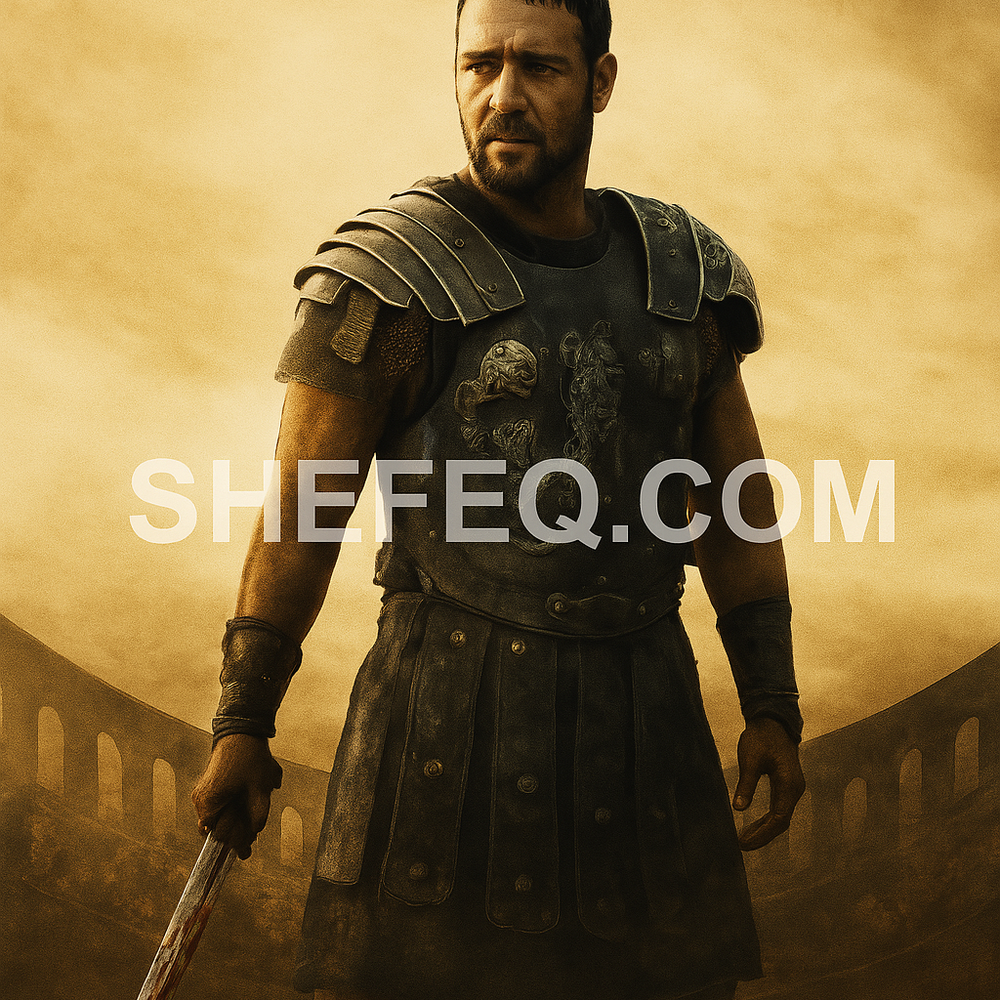Introduction
"Gladiator," directed by Ridley Scott and released in 2000, is an epic historical drama that left an indelible mark on the history of cinema and in the memories of its audiences. The main character, Maximus Decimus Meridius, portrayed by Russell Crowe, captured hearts not only as a warrior but as a man of values, love for his family, pursuit of justice, and the drive for vengeance. This article will analyze the film’s plot, central themes, historical context, symbolism, performances, music, and its lasting contributions to the art of cinema.
I. Historical Context and Directorial Approach
"Gladiator" is set during the Roman Empire, around 180 AD, and focuses on Emperor Marcus Aurelius, his son Commodus, and General Maximus. While Scott did not strictly adhere to historical accuracy, he used artistic license to create a powerful, emotional story centered on human experience rather than just historical facts — making the film more impactful.
II. Plot Summary
The film follows the fall of Maximus, a respected Roman general, and his transformation into a gladiator seeking revenge. Marcus Aurelius wishes to name Maximus as his successor, bypassing his son Commodus. Commodus kills his father and takes the throne, condemning Maximus to slavery. After the murder of his family, Maximus is forced to fight in the gladiator arenas. His skill and leadership quickly elevate him to legendary status. Throughout the film, Maximus’s goal remains simple: justice and revenge.
III. Maximus – A Symbol of Inner Strength
Maximus is the archetypal hero: loyal to his family, honorable, determined in battle, and unafraid to stand against tyranny. His strength lies not only in his physical prowess but in his unwavering moral compass. Even on the path of vengeance, he retains his humanity. His monologue — “I am Maximus Decimus Meridius...” — remains one of the most memorable lines in cinema history.
IV. Commodus – The Embodiment of Fear and Pride
Commodus (played by Joaquin Phoenix) is a tyrant driven by insecurity and a longing for affection he feels he never received. Maximus represents both a threat and a mirror reflecting Commodus’s inadequacies. His fragility and cruelty lead to the destruction of everything around him. Phoenix’s brilliant performance adds emotional weight to the narrative.
V. Supporting Characters and Their Roles
Characters like Lucilla, Proximo, and Cicero enrich the story. Lucilla, Commodus’s sister and Maximus’s former lover, acts as a political counterbalance. Proximo serves as Maximus’s mentor in the gladiatorial world. These characters deepen the film’s drama and philosophical resonance.
VI. Visual and Technical Aspects
Ridley Scott crafted a visually stunning recreation of ancient Rome. The Colosseum sequences, battle choreography, and overall atmosphere are presented not just with accuracy but with aesthetic brilliance. The blend of CGI and practical effects was groundbreaking for its time.
VII. Music – Emotional Score by Hans Zimmer
The film’s score, composed by Hans Zimmer and vocalist Lisa Gerrard, plays a vital role in its emotional impact. The track “Now We Are Free,” used in the final scenes where Maximus reunites with his family in death, adds a mystical and poetic tone to the film.
VIII. Symbolism and Philosophical Depth
"Gladiator" is more than a film about battles and revenge. It explores themes of freedom, death, family, justice, honor, and redemption. Maximus’s line, “I am going to my family,” suggests that death is not an end but a reunion and a release.
IX. Criticism and Awards
In 2001, the film won five Academy Awards: Best Picture, Best Actor (Russell Crowe), Best Costume Design, Best Sound, and Best Visual Effects. It also received numerous other prestigious accolades. While some critics questioned its historical accuracy, the film was nonetheless celebrated by audiences and industry professionals alike.
X. Impact on Cinema
"Gladiator" revitalized the historical epic genre. Its success paved the way for films like "Troy," "King Arthur," "300," and "Alexander." Ridley Scott reawakened Hollywood’s interest in grand-scale epic storytelling and demonstrated the power of visual narrative.
XI. Audience Reaction and Popularity
The film was a massive success not only with critics but also with general audiences. Its dialogue, iconic scenes, and emotional power have remained etched in memory. Maximus’s calm yet resolute demeanor in battle made a profound impact.
XII. Moral and Human Lessons
The film poses important questions: What is justice? How valuable is freedom? Is true strength in vengeance or forgiveness? Through Maximus, viewers are invited to explore these ideas. Above all, the film affirms the supreme value of family, honor, and dignity.
Conclusion
"Gladiator" is not merely the story of a warrior’s battle — it is an epic tribute to the human spirit, perseverance, love, honor, and justice. Through Ridley Scott’s direction, Russell Crowe’s performance, and Hans Zimmer’s music, it has become one of the most powerful and unforgettable films of the 21st century. It remains a rare cinematic work that gains new meaning with each viewing.

